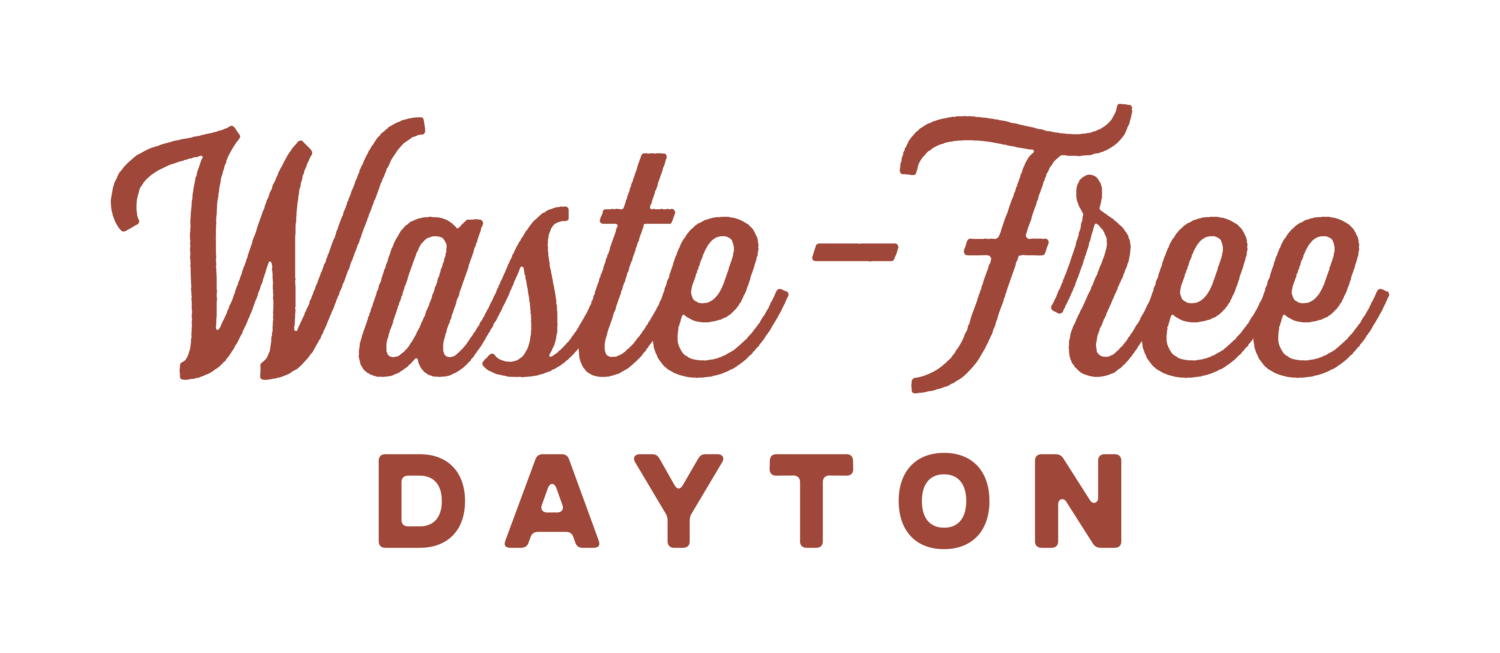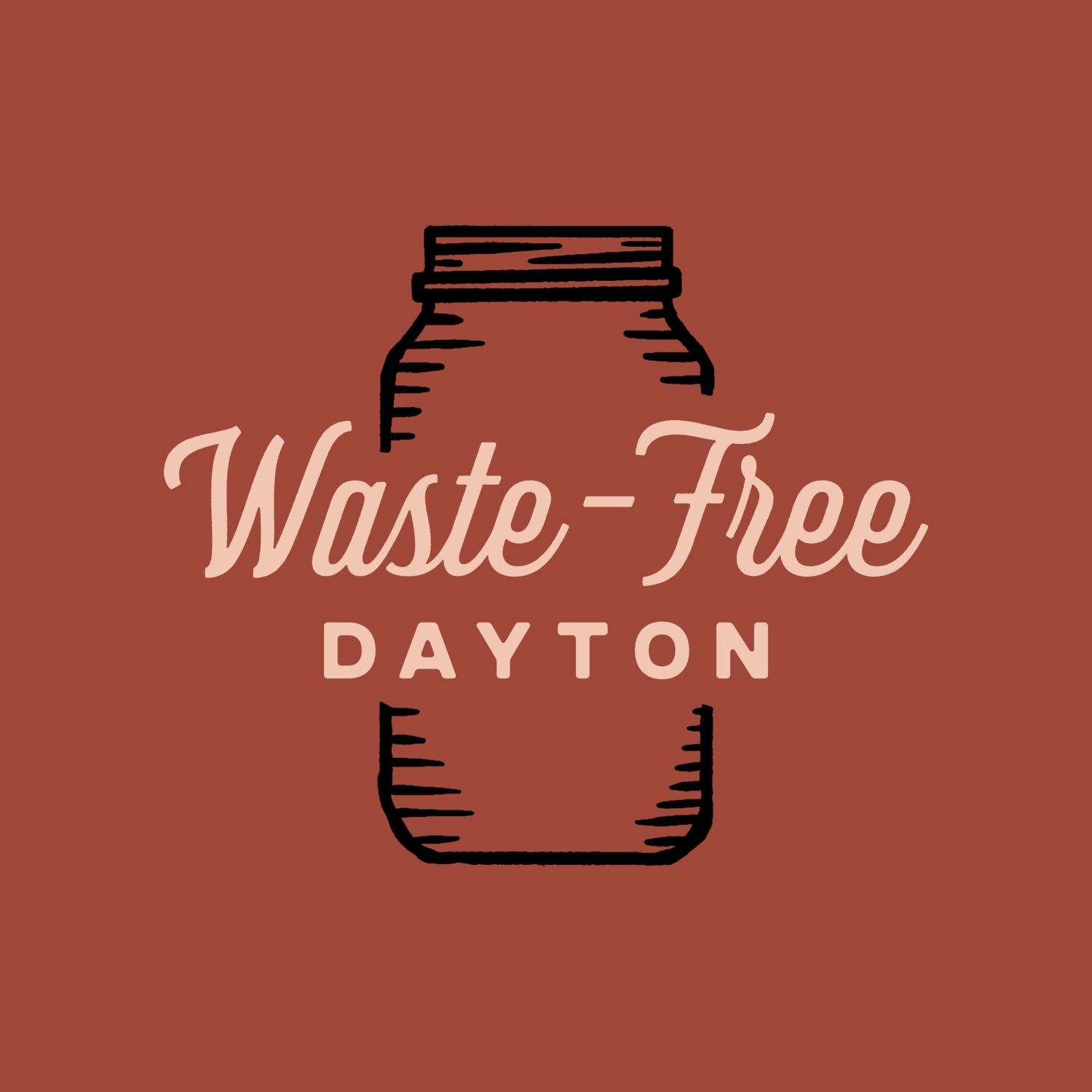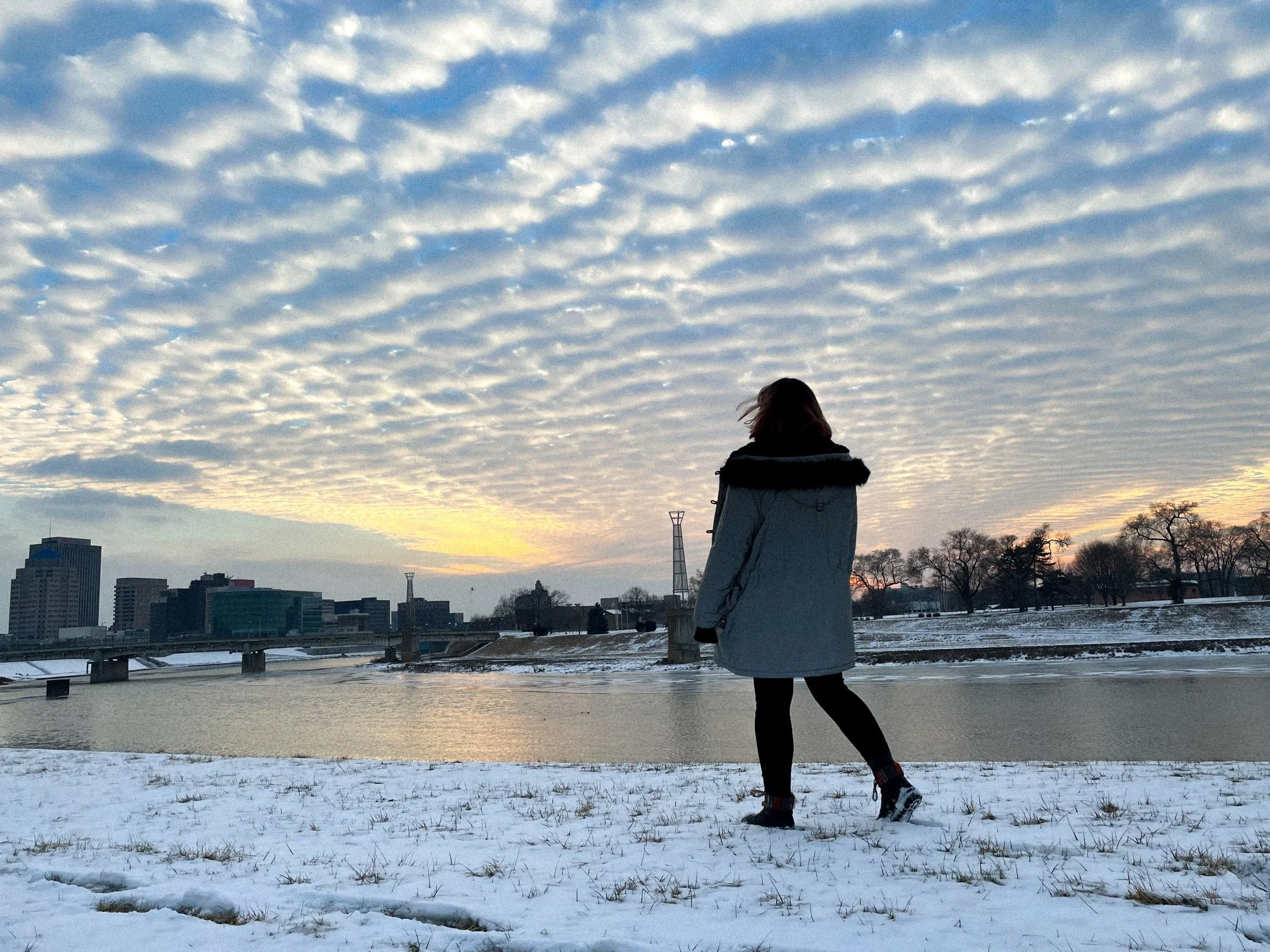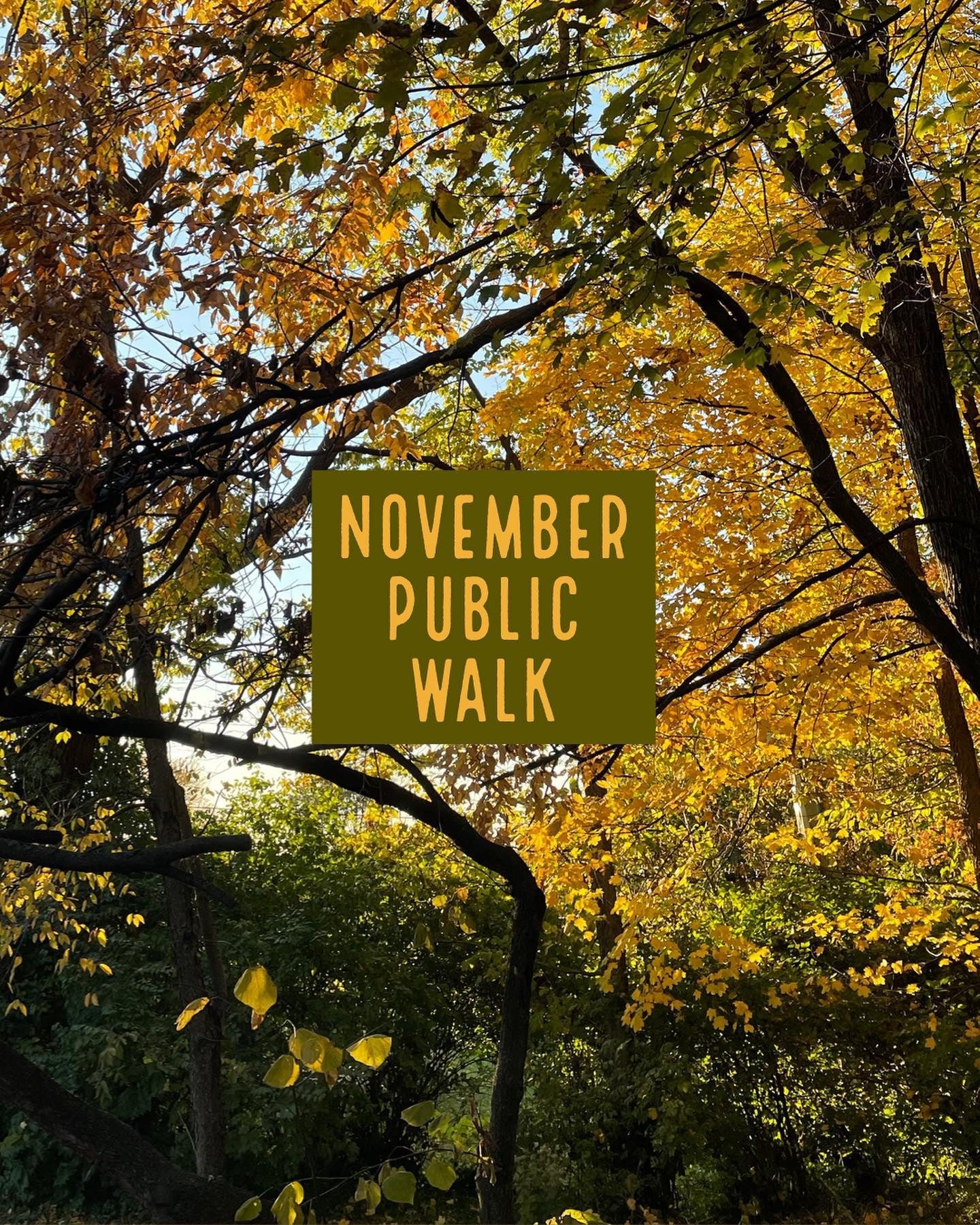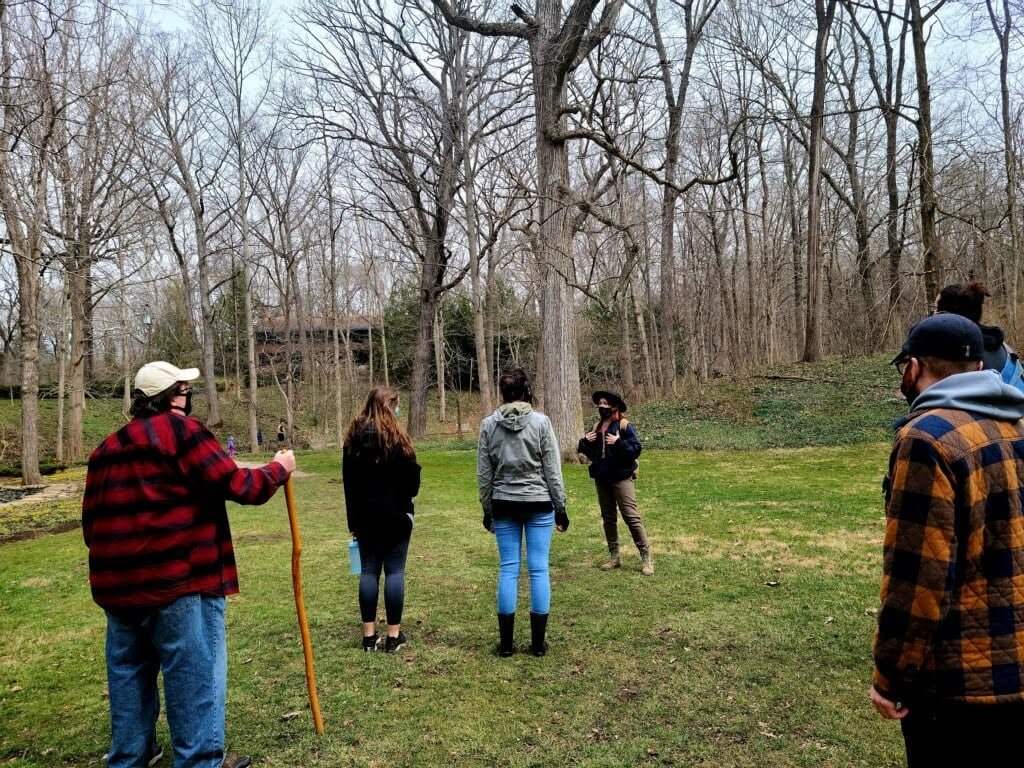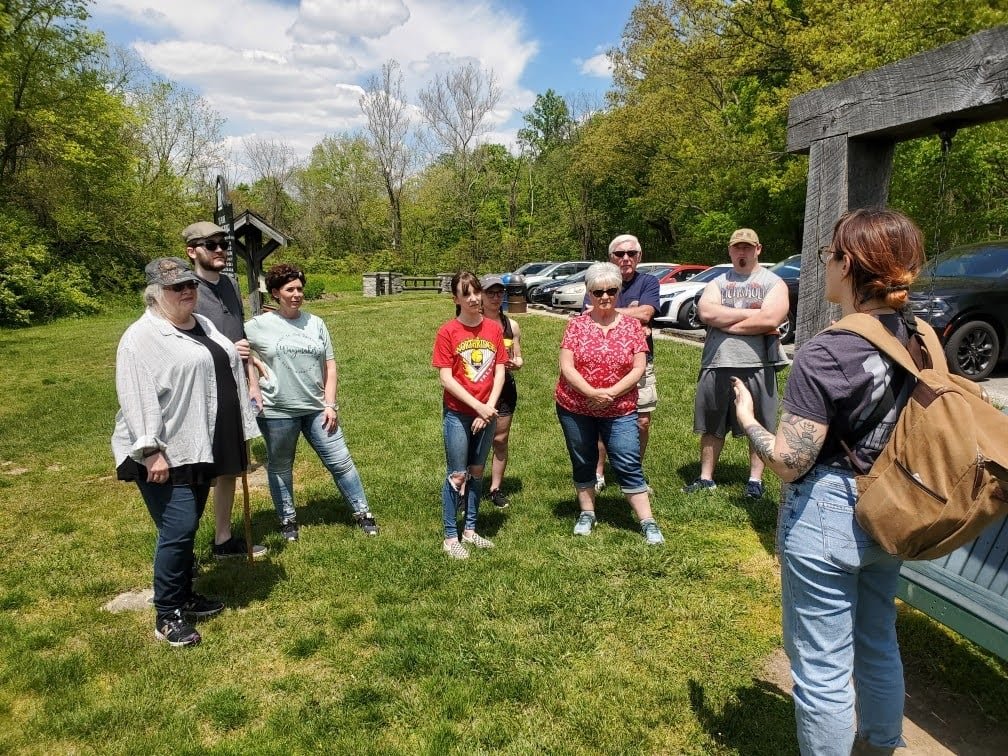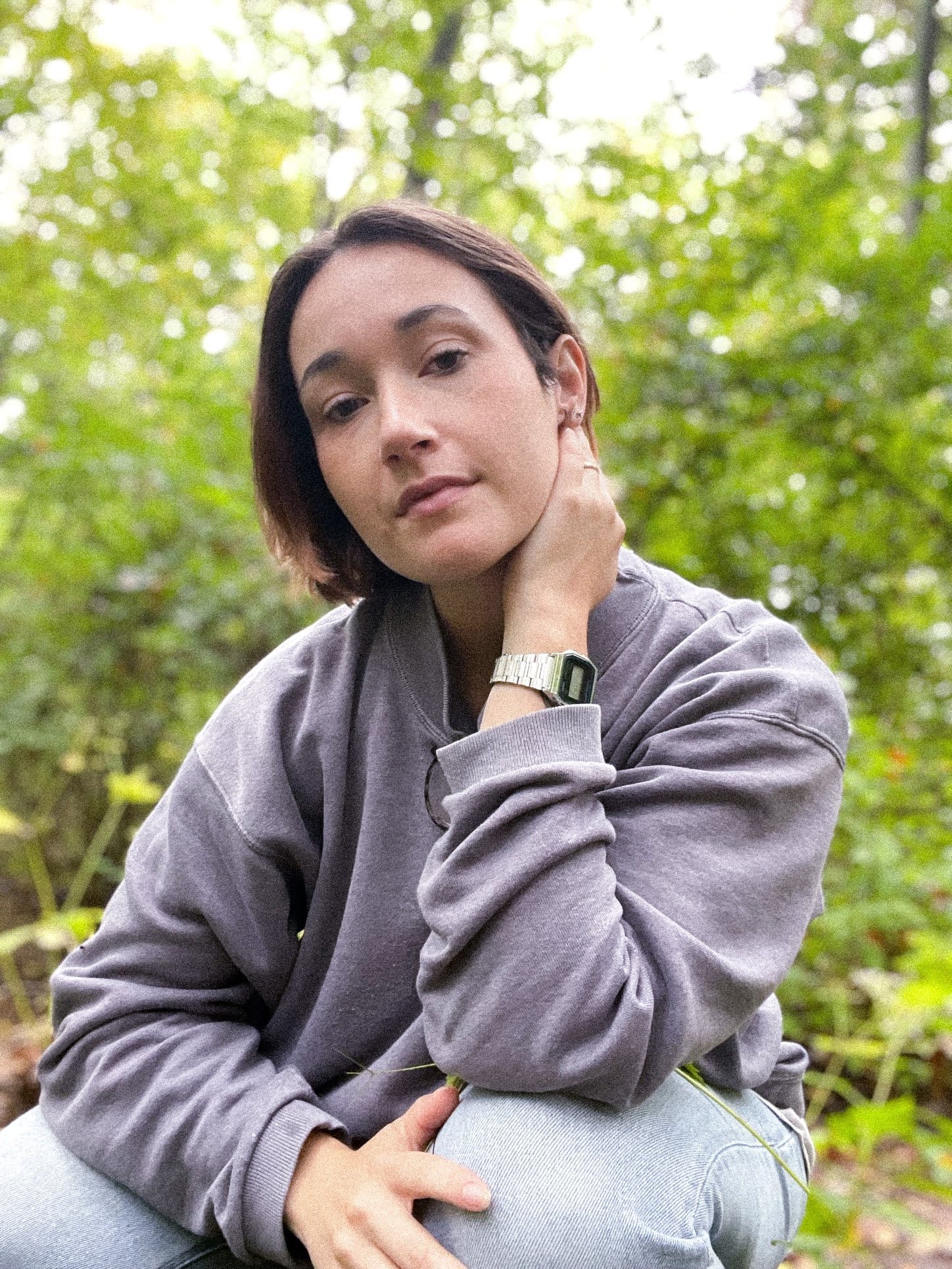Humans of Waste-Free Dayton: Darion from Gem City Wild
Waste-Free Dayton was started in April 2020 to be an online community where members could share tips, ask questions, learn, and help each other grow on our waste-free journeys. The group, and our community as a whole, has many inspiring individuals, so we are excited to launch this new feature, Humans of Waste-Free Dayton. Our first interview is with Darion, certified nature therapy guide and founder of Gem City Wild.
Tell us a bit about yourself, Darion! My name is Darion and I am finishing my B.A. in urban sustainability at the University of Dayton. I am also a certified nature therapy guide through the Association of Nature and Forest Therapy (ANFT), and offer guided nature therapy walks around the Dayton area through my small business called Gem City Wild.
How long have you lived in the Dayton area? I have lived in the Dayton area a total of 13 years, stretched out throughout my life journey of having been first an ‘air force brat’ moving around the U.S. for my Mom’s service and then leaving for my own military service as an adult. We have been living back in Dayton for about a year now, having somehow accomplished a move from New Mexico to Dayton during the first summer of the pandemic.
What are some of your favorite parts about the city? My favorite part about Dayton is how much nature we actually have. I really love the urban/nature balance of the Miami Valley and I think it is exceptional in comparison to other cities of similar size. There are so many nature nerds here, I’ve had an easy time building community around shared passions for the environment.
What do you tend to focus on when trying to be waste-free? Lately, I am examining my personal relationship to the concept of waste in general. I think it’s interesting to look at what we do and don’t consider waste, both individually and as a society, and our physical behaviors towards it. For example, the acts of balling up trash and tossing, or not looking at trash, or hiding our trash cans under counters, so on and so forth, all communicate many things about what we do or don’t find important; We leave dumpsters stinky and a mess because we only have to face the reality of the waste we produce once a week on trash day.
Striving towards waste-free living has been a life-long meditation on my relationship to waste. Pushing towards regenerative futures means developing a mindfulness around everything we use, cradle to cradle.
What is your favorite food or dish? Right now I’m on an Indian food kick, chicken tikka saag with the garlic naan… WOOF.
What are some of your favorite interests? I love poetry, prose, arts n crafts and DIY projects, kayaking, hiking, exploring new places, and people watching. I also enjoy cozying up with a book and coffee, or watching anime when I'm not feeling so adventurous.
What was the specific moment that caused you to be environmentally conscious? I can’t really think of a specific time in my life... I have always loved the woods and felt a deep kinship with the other-than-human world. Nature was my escape, my refuge from a stressful reality, a place full of imagination and adventure. From an early age I knew we needed to clean up the planet, protect endangered species, and protect ecosystems, but it wasn’t until much later in life that I understood that environmental justice and regenerative economy design were also inextricably linked to the success of the environmentally conscious movement.
You are a Nature Therapy Guide through your own service, Gem City Wild, and you are leading a nature walk in November that we can sign up for! Can you share a bit more about those guides and how they operate? So, nature therapy as ANFT teaches is inspired by the Japanese practice shinrin-yoku, or “forest bathing”. In Japan, this is formal medical work that is used in health management plans and can be covered with health insurance. They might take urine samples or run other tests pre and post walk, for example. It is recommended by physicians for things like anxiety, depression, stress, as well as part of cancer-fighting regimens and other physiological ailments. This work is backed by over 40 years of medical research that the Japanese have been conducting in the area of health benefits associated with nature immersion.
However, the work I do with Gem City Wild is different in that, while I strive to provide this health benefit education to the public, the larger social goal is to help foster relationship building between participants and the environment. I do this through public and private group nature walks. It is a 2-hour, slow paced immersion with nature focusing on using our senses to connect. The group alternates between group sharing and 15 minute invitations to engage with the land, ending in a ceremony that allows everyone to share gratitude back with the land for time well spent.
Being able to cultivate a personal relationship to the land we live on is one essential key to the paradigm shift needed to navigate our climate crisis. I do this work because I think it is important to find and break down barriers to accessing and connecting with nature. I do this work because I firmly believe it is a real, necessary, and effective way to promote holistic wellness.
What do you enjoy about being environmentally friendly? What do you dislike? I enjoy feeling like I am making a difference, and my small personal actions do help alleviate some of the climate grief that I feel around the degradation of our planet. Pursuing environmental activities has allowed me to find community with like-minded people.
I dislike that it often feels like it will never be enough, that we still (unfortunately) rely so heavily on government and industry participation to move the needle of progress.
Any other advice to people starting out or thinking about going on this journey? Be an imperfect recycler, activist, environmentalist, conscious-shopper. Even just becoming aware of your own relationship and feelings around waste, noticing your own behavior and feelings around it. It is important to find the path that suits you and your interests, as there is no one right way to go about this journey. Treat ‘waste free’ as an ever-moving goal point, much like sustainability itself.
Would you like to share about other areas you strive to be environmentally conscious? Over the last few years I have really tried to shift away from online purchasing and buying brand new items unless it absolutely makes sense for it to be brand new. I almost strictly thrift my wardrobe and use resale apps to find everything from tools, art supplies, to home décor and toys for my kiddo. It takes a little longer to hunt for the items I absolutely love, but it is so much more rewarding when I do find something. I also try to consider if it is something I can make myself with materials I already have.
If you could pick one thing to help the city of Dayton be more environmentally friendly/more sustainable, what would that be? At the government and policy level, I would urge the Dayton utility companies to stop purchasing natural gas and coal-supplied energy, and instead transition to localized/decentralized clean energy options for industry and residents; I would urge residents to electrify their homes (removal of gas utilization) and look for rebates that assist in repairing and upgrading insulation, HVAC technology, and purchasing of high efficiency appliances.
It is important to find the path that suits you and your interests, as there is no one right way to go about this journey. Treat ‘waste free’ as an ever-moving goal point, much like sustainability itself.
======
Thank you for sharing your story with us, Darion! If you have an interest in sharing your own story, you can email info@wastefreedayton.org.
